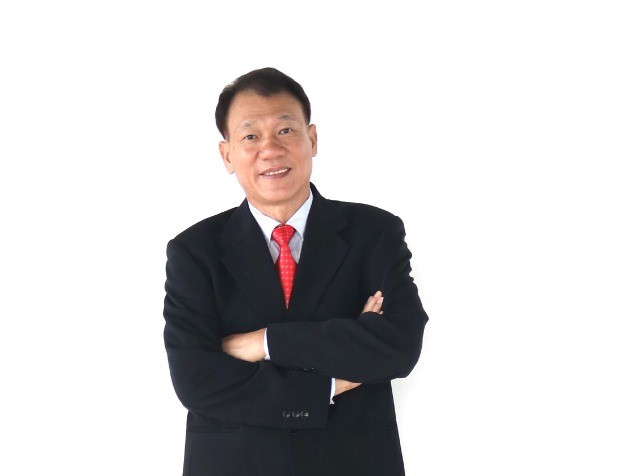KUALA LUMPUR, Feb 23 – Biopharmaceutical company Solution Biologics, a subsidiary of Solution Group Berhad, has signed an agreement with the Malaysian government to supply Covid-19 vaccines to cover nearly 11 per cent of the population.
Solution Biologics has a 10-year exclusive licence from China’s CanSino Biologics to undertake a fill-and-finish manufacturing process of CanSino’s single-shot vaccine here and to distribute them to public and private health care providers in Malaysia, as well as to export the vaccines to other countries in ASEAN. These are the Philippines, Vietnam, Thailand, Myanmar, Cambodia, Laos, and Brunei.
Solution Biologics has touted boosting local research capacity in its manufacturing and distribution of CanSino vaccines in Malaysia. While the Malaysian government has ordered 3.5 million doses of CanSino’s vaccine for the national Covid-19 vaccination programme, Solution Biologics also plans to supply the private sector here.
“We are not just a distributor, we are a partner of CanSino as a regional partner. We do formulation, fill and finish, we add value to the vaccine project and to the government — we hire more people and we also work together with research institutes, universities, and other national institutes,” Solution Biologics CEO Mohd Nazlee Kamal told CodeBlue in an interview.
“The CanSino’s Ad5-nCoV is a single dose and has proven to be effective with 65.7 per cent efficacy in preventing symptomatic Covid-19, as well as 90.98 per cent success in stopping severe disease, according to interim results from global Phase 3 clinical trials.
“In Pakistan, with a study of 30,000 participants, CanSino’s Covid-19 vaccine showed 74.8 per cent efficacy in preventing symptomatic cases and 100 per cent effectiveness in preventing severe disease. It provides dual protection, both humoral and cellular immunity, is stable at two to eight degrees Celsius for 24 months, and there’s excellent safety data with no adverse reaction reported to date.
“To us, it checks out all the important features for a vaccine for Malaysia and ASEAN,” added Nazlee.
“A 70 percent effective single-dose vaccine may be more valuable than a two-dose regimen with 90 percent efficacy,” the World Health Organization (WHO) Ad-hoc Expert Group previously said in the New England Journal of Medicine. Under the same efficacy rate and capacity conditions, the single-shot vaccine doubles the amount of people being immunised.
Recently, Pakistan and Mexico have approved CanSino’s Covid-19 vaccine for emergency use.
The New York Academy of Sciences said CanSino is also testing a two-dose regimen in China that will likely be among the first trials in the world to study Covid-19 vaccines on children. Participants as young as six years old are included in the study.
CanSino founder and chairman Xuefeng Yu was quoted saying that no adverse effects from the CanSino vaccine were reported in more than 150,000 members of the Chinese military who received shots under an emergency use agreement, outside clinical trials.

Solution Biologics’ fill-and-finish facility at Technology Park Malaysia in Bukit Jalil here — which will fill vials with Covid-19 vaccines and package them for distribution — is expected to begin operations by mid-June this year. The National Pharmaceutical Regulatory Agency (NPRA) has approved the facility’s design plan and layout.
The formulation and fill-and-finish plant is capable of producing up to three million vaccine doses a month.
Solution Biologics is in the process of submitting phase one, two, and interim phase three data of clinical trials on CanSino’s vaccine to the NPRA for approval, after Solution Biologics signed a term sheet agreement with the Ministry of Health (MOH).
Nazlee — who was formerly CEO of Bioeconomy Corporation, the lead development agency for bio-based industry in Malaysia — said Solution Biologics plans to recruit at least about 30 people for its manufacturing facility, such as molecular biologists; biochemists; microbiologists; pharmacists; electrical, mechanical and bioprocessing engineers.
People with experience in quality control, quality assurance, manufacturing, and visual inspectors, among others, will also be hired.
He explained that Solution Biologics in principle will work with local research institutions to increase the technology content of the company, which will enhance Malaysia’s vaccine technology capabilities.
“We’re using some of our resources to share with local institutes. Otherwise, just imagine, if we’re importing the vaccine, there will be no added local expertise. In our case, we’re parting part of our development and technology enhancement to local institutions so they can participate and gain experience,” Nazlee said.
He added that Solution Biologics would also work with local universities on enhancing the disposable one-time-use technology in manufacturing.
“One-time use shortens the time and money to be spent; this tech could be something we can work with universities to develop our expertise in the field.”
When asked if Solution Biologics — a new wholly-owned subsidiary of engineering company Solution Group Berhad — had experience in the fill-and-finish process for vaccines, Nazlee said parent company Solution Group is well-versed in good manufacturing practice (GMP) as it also produces equipment in the life sciences.
“We can take up the challenge because we understand the GMP requirement of the manufacturing that involves the process of formulation, fill and finish for pharmaceuticals,” Nazlee said.
“In our previous business model, we made equipment for the client. We were on the other side, so we understand the requirements of procurement, user requirement specifications, GMP component on safety level, and basically, the whole exercise of what it takes to make this manufacturing to work.”
Solution Biologics, said Nazlee, may work with CanSino on its other vaccines in development, such as a meningococcal vaccine that has completed its Phase 3 clinical trials, and is expected to be launched this year.
“Adenovirus is a relatively new technology. More vaccines will be produced using this new platform, replacing the old platform of attenuated vaccines. We’ll become a conduit for local universities to have a connection with CanSino and us to have some new projects in the future.”
CanSino’s Covid-19 vaccine uses a modified version of a cold virus known as adenovirus type 5, or Ad5, as a “vector” to transport genes from the virus that causes Covid-19 into human cells, in order to prompt the immune system to fight the novel coronavirus.
“In Malaysia, we expect to do somewhere between eight to 10 million doses. This is not only for local citizens, but also foreign workers, and immigrants, and expats,” Solution Group managing director Barry Lim told CodeBlue.
Nazlee said: “The government has been talking about a vaccine roadmap; we’re part of the equation that the government will put in place.”









